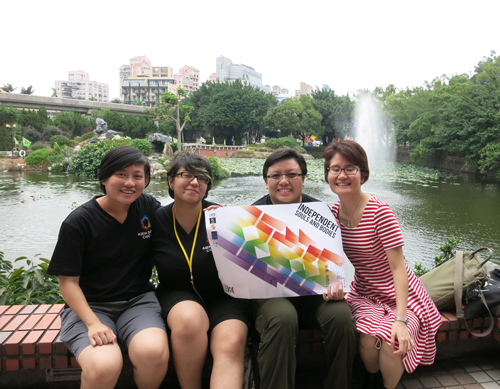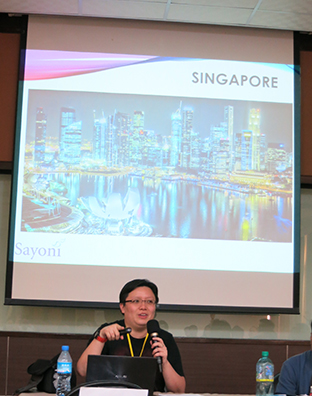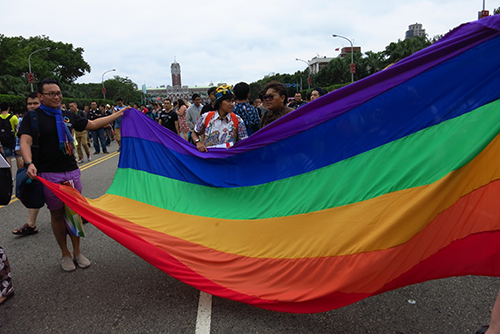
Several Sayoni volunteers attended the 2015 ILGA-Asia regional conference held in Taipei, Taiwan, from 28-30 October this year. Besides learning from other Asian activists at the formal sessions, we also took the opportunity to share strategies and ideas in informal settings. This year's conference coincided with Taipei's 2015 Pride Parade, the largest pride march in the region.
It was the first time that this lesbian, gay, bisexual, transgender, intersex and queer (LGBTIQ) conference was held in Taiwan. Co-organised by the Taiwan Tongzhi Hotline Association, the conference saw 300 activists from 30 countries, including Bangladesh, Nepal, Pakistan, China, Malaysia and Singapore. Over a period of three days, activists held talks and workshops about the work they were doing within their organisations and regionally.
We heard about experiences from other countries that gave us much to reflect on. The host city, Taipei, was itself an interesting case. Even as its same-sex partnership bill has stalled in Parliament, Taiwanese activists Jennifer Lu and Victoria Hsu are standing for political office in Taipei; Lu also got married to her partner recently. And they are hardly the only out LGBTQ candidates in the city, which has a burgeoning civil society space. On our end, Sayoni's Jean Chong presented some of her thesis findings at a session with other Asian activists, explaining how Singapore, leaning on Asian exceptionalism, has exerted political control over the private lives of its citizens.

One of the key ideas that emerged from the conference was the concept of intersectionality, an idea that the ASEAN SOGIE Caucus, which Sayoni is a part of, actively incorporates in its positions. The Caucus is a network of diverse human rights activists in Southeast Asia that aims for the inclusion of SOGIE (sexual orientation, gender identity and expression) in human rights mechanisms in the Association of Southeast Asian Nations. As Ryan Silverio, Regional Coordinator of the ASEAN SOGIE Caucus, said, “Applying intersectionality in our activism requires us to go beyond single-issue politics. We recognize that our experience of discrimination and marginalization is not just because of our sexual orientation, gender identity and gender expression.”
Despite the success of the conference, there were also gaps in the formal sessions, particularly when it came to women's issues. A petition that was eventually signed by most of the participants pointed out "the lack of space and diversity, including gender, age and other status on panel and plenary sessions". One of its recommendations was a quota system for sessions at the next conference to "ensure issues faced by diverse women are meaningfully addressed". (See the full statement here.)

